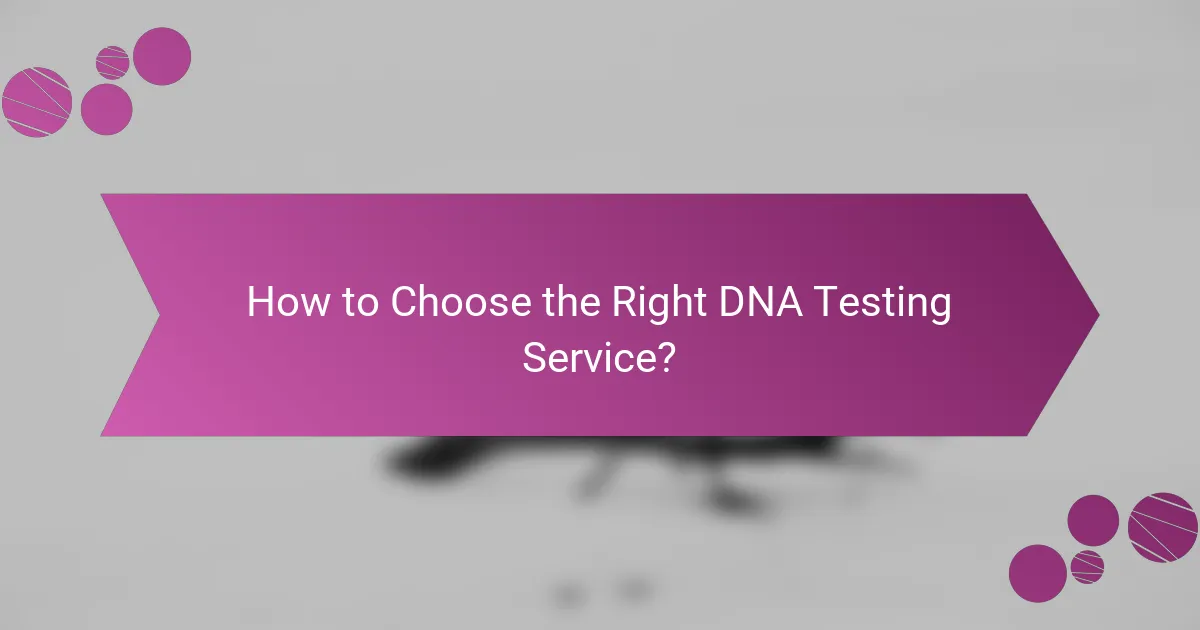Personalized DNA fitness and nutrition plans offer tailored strategies that leverage an individual’s genetic makeup to optimize weight management and dietary choices. For busy professionals, these customized solutions simplify the process of maintaining a healthy lifestyle, making it easier to balance caloric intake with physical activity. By focusing on sustainable lifestyle changes, these plans help individuals achieve and maintain their health goals effectively.

What Are Personalized DNA Fitness & Nutrition Plans?
Personalized DNA fitness and nutrition plans are tailored strategies based on an individual’s genetic makeup. These plans aim to optimize weight management, fitness routines, and dietary choices by leveraging insights derived from DNA analysis.
Definition of personalized DNA plans
Personalized DNA plans involve analyzing specific genetic markers that influence metabolism, nutrient absorption, and physical performance. By understanding these genetic factors, individuals can receive customized recommendations for exercise and nutrition that align with their unique biological profiles.
These plans typically include assessments of genetic predispositions to certain dietary needs, exercise responses, and potential health risks, allowing for a more effective approach to fitness and nutrition.
Benefits of personalized plans
The primary benefit of personalized DNA plans is their ability to provide tailored solutions that can enhance weight management and overall health. Individuals often experience improved adherence to fitness and nutrition regimens when they are designed specifically for their genetic profiles.
Additionally, these plans can lead to more efficient results, as they focus on strategies that are more likely to work for the individual, potentially saving time and effort in trial-and-error approaches. Common benefits include increased energy levels, better recovery times, and optimized nutrient intake.
How DNA influences fitness and nutrition
DNA influences fitness and nutrition by determining how the body processes different nutrients and responds to various types of exercise. For instance, some individuals may have a genetic predisposition that makes them more efficient at burning carbohydrates, while others may excel at fat oxidation.
Understanding these genetic tendencies can help individuals choose the right types of workouts and dietary plans. For example, someone with a genetic marker indicating a slower metabolism may benefit from a diet lower in carbohydrates and a focus on strength training to boost metabolic rate.

How Can Busy Professionals Benefit from Tailored Solutions?
Busy professionals can significantly enhance their health and wellness through personalized DNA fitness and nutrition plans. These tailored solutions address individual needs, making it easier to manage weight and maintain a balanced lifestyle amidst a hectic schedule.
Time-efficient meal planning
Time-efficient meal planning is crucial for busy professionals who often struggle to find time for healthy eating. By utilizing personalized meal plans based on DNA insights, individuals can quickly prepare nutritious meals that align with their dietary preferences and health goals.
Consider batch cooking or meal prepping on weekends to save time during the week. Simple recipes that can be made in under 30 minutes are ideal, allowing for quick, healthy options without the stress of daily cooking.
Custom workout schedules
Custom workout schedules help busy professionals integrate fitness into their daily routines without overwhelming them. Tailored plans can accommodate varying schedules, ensuring that workouts fit seamlessly into busy days.
For instance, a plan might suggest short, high-intensity interval training (HIIT) sessions that last 20-30 minutes, making it easier to stay active even with limited time. Flexibility in workout timing can also help maintain consistency and motivation.
Stress management strategies
Effective stress management strategies are essential for busy professionals to maintain overall well-being. Personalized solutions can include mindfulness practices, breathing exercises, and time management techniques tailored to individual stress triggers.
Incorporating short breaks throughout the day for relaxation or quick physical activity can significantly reduce stress levels. Additionally, utilizing apps for guided meditation or stress tracking can provide ongoing support and help professionals stay focused and balanced.

What Are Effective Weight Management Strategies?
Effective weight management strategies focus on balancing caloric intake with physical activity while promoting sustainable lifestyle changes. These strategies can help individuals achieve and maintain a healthy weight over time.
Caloric intake tracking
Tracking caloric intake is essential for effective weight management. By monitoring daily food consumption, individuals can better understand their eating habits and make informed choices. Tools like mobile apps or food diaries can simplify this process.
Aiming for a caloric deficit, where energy expenditure exceeds intake, is crucial for weight loss. Generally, a deficit of 500 to 1,000 calories per day can lead to a safe weight loss of about 0.5 to 1 kg per week.
Exercise recommendations
Incorporating regular exercise is vital for weight management. Aim for at least 150 minutes of moderate-intensity aerobic activity each week, such as brisk walking or cycling, combined with strength training on two or more days. This combination helps burn calories and build muscle.
Finding enjoyable activities can improve adherence to an exercise routine. Consider options like group classes, sports, or outdoor activities to stay motivated and engaged.
Behavioral changes for weight loss
Behavioral changes play a significant role in successful weight loss. Focus on setting realistic goals, such as losing 5-10% of body weight, and develop strategies to overcome common challenges, like emotional eating or social pressures.
Practicing mindful eating can also aid in weight management. This involves paying attention to hunger cues, eating slowly, and savoring each bite, which can help prevent overeating.

How to Choose the Right DNA Testing Service?
Choosing the right DNA testing service involves evaluating the company’s reputation, the factors influencing your selection, and the costs associated with their services. A well-informed decision can lead to more personalized and effective fitness and nutrition plans tailored to your needs.
Reputable companies for DNA testing
Several companies are recognized for their reliable DNA testing services, including 23andMe, AncestryDNA, and MyHeritage. These companies have established credibility through extensive customer reviews and scientific backing. Look for services that provide clear information about their testing processes and data privacy policies.
Additionally, consider companies that offer specific insights related to fitness and nutrition, such as DNAfit and Nutrigenomix. These specialized services can provide tailored recommendations based on your genetic profile.
Factors to consider in selection
When selecting a DNA testing service, consider the type of information you want, such as ancestry, health traits, or fitness insights. Ensure the service provides comprehensive reports that are easy to understand and actionable. Customer support and the ability to consult with professionals about your results can also enhance your experience.
Data privacy is crucial; check how the company handles your genetic information and whether they share it with third parties. Look for services that comply with local regulations, such as GDPR in Europe or HIPAA in the United States, to ensure your data is protected.
Cost comparisons of services
The cost of DNA testing services can vary significantly, typically ranging from around $70 to $300 or more, depending on the depth of analysis and the company. Basic ancestry tests are generally less expensive, while comprehensive health and fitness insights can be on the higher end of the spectrum.
Some companies offer subscription models for ongoing insights or additional services, which can be more economical for frequent users. Always compare what is included in the price, such as consultation services or additional reports, to determine the best value for your needs.

What Are the Key Components of a Personalized Plan?
A personalized DNA fitness and nutrition plan focuses on individual genetic profiles to create tailored strategies for weight management. Key components include nutrition guidelines based on DNA, exercise routines aligned with genetic predispositions, and ongoing monitoring to adjust plans as needed.
Nutrition guidelines based on DNA
Nutrition guidelines derived from DNA analysis consider how your body metabolizes different nutrients. This can help identify optimal macronutrient ratios, such as the ideal balance of carbohydrates, proteins, and fats for your specific genetic makeup.
For example, some individuals may benefit from higher protein intake, while others may thrive on a more carbohydrate-rich diet. A personalized plan can also highlight food sensitivities or preferences, guiding you toward choices that enhance energy and overall health.
Exercise routines tailored to genetics
Exercise routines tailored to genetics take into account how your body responds to different types of physical activity. Genetic insights can help determine whether you are more suited for endurance training or strength building, allowing for a more effective workout regimen.
For instance, if your genetic profile indicates a predisposition for muscle gain, your plan may emphasize resistance training. Conversely, if you have a genetic inclination for endurance, your routine might prioritize aerobic exercises like running or cycling.
Monitoring and adjustments
Monitoring and adjustments are crucial for ensuring that your personalized plan remains effective over time. Regular assessments can help track progress and identify areas that may need modification based on changes in fitness levels or health goals.
Consider setting up monthly check-ins to evaluate your nutrition and exercise outcomes. This allows for timely adjustments, such as altering caloric intake or modifying workout intensity, ensuring that your plan continues to align with your evolving needs.

What Are the Costs of Personalized Plans?
The costs of personalized DNA fitness and nutrition plans can vary widely based on the services offered and the provider. Generally, individuals can expect to invest in DNA testing, coaching, and ongoing support, which together create a comprehensive approach to weight management.
Pricing ranges for DNA testing
DNA testing for personalized fitness and nutrition plans typically ranges from around $100 to $300. This cost may include a comprehensive analysis of genetic markers related to metabolism, fitness, and dietary preferences. Some providers may offer bundled packages that include additional services, which can affect the overall price.
Costs of nutrition and fitness coaching
Nutrition and fitness coaching costs can vary significantly, often ranging from $50 to $150 per session, depending on the coach’s experience and the depth of the program. Many coaches offer packages that can reduce the per-session cost, making it more affordable for busy professionals seeking tailored solutions.
Long-term investment benefits
Investing in personalized plans can yield long-term benefits, such as improved health outcomes and sustained weight management. While the initial costs may seem high, many individuals find that the tailored approach leads to better adherence to fitness and nutrition goals, ultimately saving money on healthcare and diet-related expenses over time.

